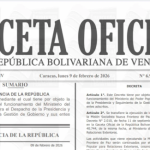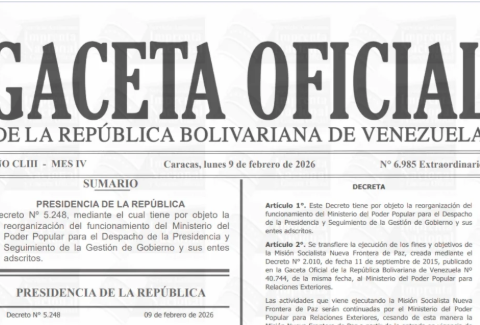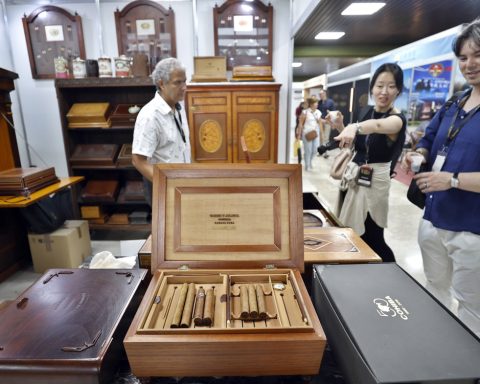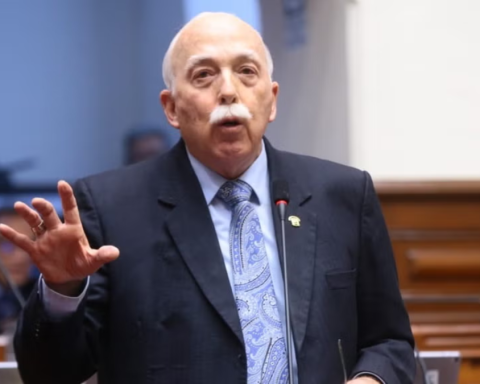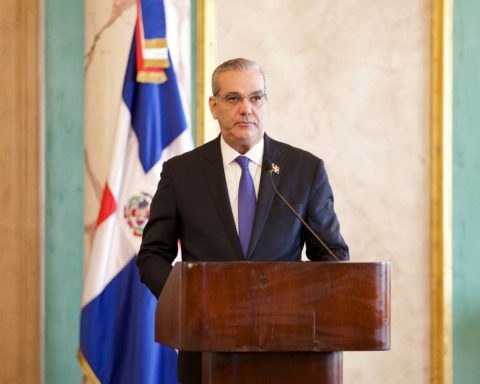▲ Alicia Bárcena Ibarra, recently ratified by the Senate as Mexico’s ambassador to Chile, proposes taking the Sembrando Vida program to the coasts of the Andean country.Photo Marco Pelaez
Andrea Becerril
Newspaper La Jornada
Tuesday, September 20, 2022, p. 13
Latin America and the Caribbean are going through an important historical moment with the arrival of progressive governments in the region, such as those of Mexico and Chile, which allows definitively strengthening the integration of the continent not only in economic and commercial matters, but also socially, he considered the ambassador of our country in the Andean nation, Alicia Bárcena Ibarra.
After his successful tenure at the head of the Executive Commission for Latin America and the Caribbean (ECLAC) for almost 14 years, where he focused on promoting a development model with economic growth, social inclusion and respect for the environment, he highlighted that governments of Andrés Manuel López Obrador and Gabriel Boric are united by the objectives of achieving greater equality, a real and substantive equality
.
In this way, the opportunity arises to advance in integration projects for food and health self-sufficiency, in addition to collaborating on energy issues, especially in terms of lithium.
In interview with the dayafter being unanimously ratified in the Senate as ambassador to Chile, Bárcena stressed that, politically speaking, she considers it relevant to organize events for next year to commemorate 50 years of the coup that overthrew President Salvador Allende.
With an extensive academic career and numerous publications on sustainable development, public policies and the environment, in addition to holding various positions in the United Nations Organization and receiving doctorates honorary cause from UNAM and other universities, such as Oslo and Havana, Alicia Bárcena feels very honored
to represent Mexico in one of the most emblematic countries of the continent.
Salvador Allende was the first socialist president in the world who was elected at the polls and that is a fact that must be rescued. The coup that overthrew him in September 1973 was very harsh. When half a century of this event is completed, one of the challenges and opportunities that I see is precisely to organize a great event to remember it
.
Above all, he explained, because the largest diaspora of Chileans at that time came to Mexico and there is a society closely linked not only by those who went into exile –among them great personalities, such as Dr. Moisés Eldmann–, but also by the children of the exiles who stayed here, like the filmmaker Marcia Tambutti Allende, who made the documentary Allende, my grandfather Allende.
There are also, he added, those who returned to Chile and there we have a Chilean-Mexican community that must be rescued, commemorated and celebrated
.
He insisted that Mexico and Chile are two very close countries, with great affections. “What to say about the story of Gabriela Mistral, of Pablo Neruda, for whom Mexico meant a lot.
It is also necessary to understand, he said, that Chile is experiencing a moment in which its constitutional process is being reconsidered, after the plebiscite of September 4, in which there was a rejection of the draft Constitution proposed by the Constituent Assembly.
“A fairly cross-sectoral agreement has been reached in recent days, there is a new position to reconfigure the Constituent Assembly, that it be equal, that it continue to have seats reserved for indigenous groups and that, above all, it has greater participation of parliamentarians, of political parties, but also independents.
A broad consultation is proposed so that President Boric achieves a Constitution widely supported by the sectors and that replaces the one of 1980, created during the dictatorship.
Ambassador Bárcena considered that Mexico, with extensive experience in this matter, especially with the recent Constitution of Mexico City, can contribute in an interparliamentary dialogue to the new supreme law of Chile.
The expedition
In both nations, he considered, there are very important common visions in the multilateral agenda, which will be deepened through the Pacific Alliance, of which Chile and Mexico are founders, and It will be possible to jointly explore a new development model that is less extractivist, more sustainable and, of course, more socially egalitarian
.
One of his proposals, which was received with great enthusiasm by legislators from all political forces when he appeared in the Senate last week, was to organize an oceanographic scientific expedition from Mexico to Chile, in which we can evaluate our marine wealth, the potential of coastal areas, even bring the Sembrando Vida program to the coasts
.
The trip could be on the ships of the UNAM and that of the National Fisheries Institute. I think the time has come to look at the sea, because the problem of climate change and food security are going to have a solution in the seas and without a doubt we must strengthen our collaboration in that regard
.
Through the Sembrando Vida program, it is proposed that on the coasts there is not only extractive fishing or trawling, but that aquaculture takes on greater relevance; see how we can cultivate algae forests in the sea, for example. Chile is very advanced in that
.
Ambassador Bárcena stressed that the expedition will be complemented with cultural aspects and will include the Economic Culture Fund and the National Crafts Fund. on a return trip by Gabriela Mistral, since the poetess came from Chile to Mexico and we return to her country by sea
.
The relationship with Chile is very productive because there are multilateral instruments such as the Pacific Alliance, therefore it is possible “to see its convergence with Mercosur and, from the Community of Latin American and Caribbean States, promote regional integration.
Latin America and the Caribbean can become a self-sufficient food exporting region, a producer of vaccines and medicines. With Chile, Bolivia and Argentina, our country must exchange experiences in the production and industrialization of lithium.
Latin American and Caribbean integration must continue and to relate more strongly with extra-regional partners, including the United States and Canada, China, Europe, but always united, not fragmented
.






